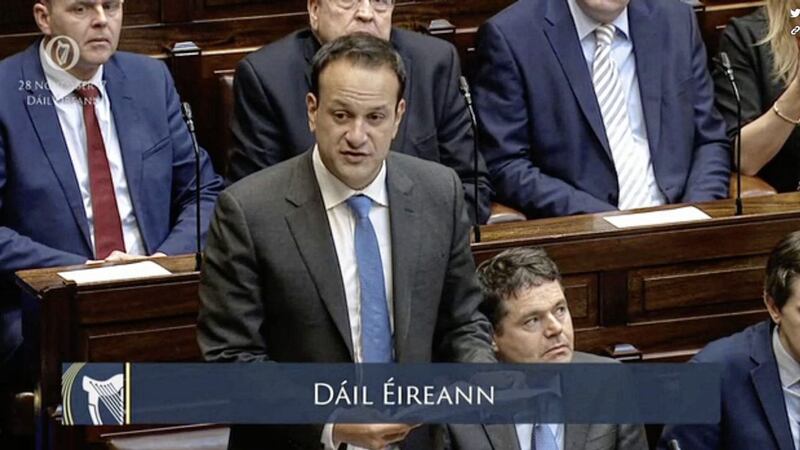Former Tánaiste Frances Fitzgerald and former first minister Arlene Foster have a lot in common when it comes to exercising political power.
Fine Gael, Fianna Fáil and the DUP also have a lot in common in the exercise of political power.
All exercise it with an eye to the proximity of Sinn Féin and in the interests of the powerful and wealthy – those they depend on and those they serve while in power.
This was clear in the Fitzgerald-induced crisis last week and in the Foster-induced crisis earlier this year.
Ms Fitzgerald and Ms Foster denied any wrong doing in high political office and still do, yet this stance in the case of Foster led to the collapse of the north’s government and with Fitzgerald brought the Irish government to the edge of collapse.
Foster and the DUP take no responsibility for the RHI heating scandal which triggered the north’s political crisis and raised serious, unanswered, questions about the DUP.
No DUP politician or senior party official lost their job over the financial scandal which could cost the taxpayer £700m.
The only sanction the DUP experienced is its removal from office by Sinn Féin’s refusal to be in government with it until the DUP change its attitude to power-sharing and denying people their rights across a range of issues.
The ongoing public inquiry into the heating scandal, important though it is, may or may not deliver what the public need on this issue – sanction against the DUP leading to a salutary reappraisal of its attitudes.
At least in the case of Fitzgerald she was forced to resign because the court of public opinion demanded it.
Her resignation was, in the end, self-serving to protect Fine Gael.
She showed no understanding of the moral responsibility she had as tánaiste and former minister for justice and equality, to act in good grace and accept she was wrong in handling the case of the ‘whistleblower’ Sgt Maurice McCabe.
She left office protesting her innocence and with the full backing of the taoiseach despite a considerable body of evidence pointing to the contrary.
Fitzgerald is the fourth senior figure to resign over the McCabe affair – two Garda Commissioners and a serving Fine Gael justice minister have also stepped down.
There was a conspiracy and a cover-up involving, at the highest level, gardaí, politicians and civil servants to smear McCabe because he revealed uncomfortable truths about the workings of the police.
When the then minister for justice Frances Fitzgerald stepped into that fiasco it was, at a minimum, a dereliction of duty.
Had Sinn Féin not acted in the north’s assembly to halt what the former deputy first minster Martin McGuinness described as “DUP arrogance” the DUP would still be in office.
Had Sinn Féin not acted in the Dáil by putting down its “no confidence” motion in the government then Fitzgerald would still be in office.
Sinn Féin forced Fianna Fáil’s hand with its “no confidence” motion.
It was fear of Sinn Féin that prompted Fianna Fail leader, Míchéal Martin, to act as he did not the ‘low practices in high places’ of Fitzgerald.
Yet no credible answers are given about the heating scandal or about the latest twists in the McCabe saga.
Is it any wonder that politics and politicians get a bad name? With such questionable practices they are rightly condemned.
But condemnation alone will not remove the debacle that served up the heating scandal and the McCabe conspiracy.
Attitudes based on class prejudice gave us the ‘brown envelope’ culture and the banking crisis of Fianna Fáil and Fine Gael. And unionist parties, with a history of domination and ‘arrogance’ gave us the heating scandal amongst a litany of others.
Partition of course has made it easier for a darker side in Irish politics to flourish.
It created two conservative states.
But those days are over as the DUP, Fianna Fáil and Fine Gael know only too well.








